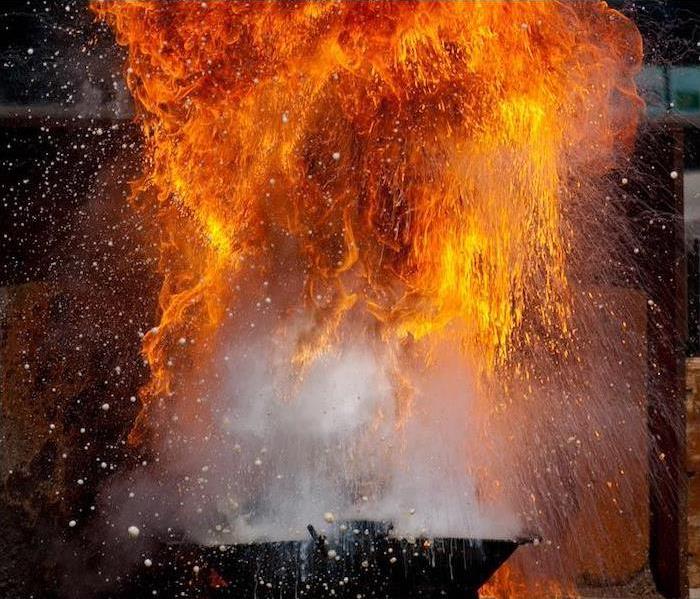Grease Fire Prevention and Extinguishment | SERVPRO® of The Lower Shore
10/5/2021 (Permalink)
It’s pure instinct—when you see a fire, you throw water on it. Every cartoon you ever saw planted and reinforced this idea, so you can hardly be blamed for the initial gut reaction that occurs when the stovetop flares up.
It’s precisely because of this common instinct that grease fires are one of the scariest and most destructive kinds of home fire you may encounter. Considering that cooking fires are the top cause of both home fires and injuries, maybe we should take some extra care in considering the danger of grease fires.
Causes of a Grease Fire
Grease fires are caused by the overheating cooking oil or animal fat. When these cooking aids and byproducts become too hot, they begin to smoke, and then they ignite into a nasty blaze.
Animal fats will ignite at around 375 degrees, and vegetable oils do so at 450. Both of these benchmarks are well within reach of your stovetop, grill or oven, and there are several scenarios which could create this danger, including turning your burners too high initially, waiting too long to add ingredients or adding frozen food directly to hot grease.
But by far the most common cause of home cooking fires is unattended cooking. Left alone, your culinary creation can conflagrate into a colossal catastrophe.
How to Stop a Grease Fire
First things first: Go against your instincts and don’t put water on a grease fire. This will not only fail to extinguish it—it will cause it to spread.
Your best bet for putting out a grease fire quickly is to smother it. If it’s contained in a pan, you may be able to keep it from causing damage.
Turn off the heating element, and reach for a nearby lid or baking sheet that will completely cover the pan. Depriving the fire of oxygen will keep it from growing and eventually kill it.
A Class B fire extinguisher can also handle grease fires, as can a fire blanket.
If your fire breaks containment and spreads, call 9-1-1 immediately. Don’t try to fight a growing grease fire yourself.
If a fire, grease-based or otherwise, breaks out and causes damage at home, we’re here to make things right again. Contact SERVPRO® to get started.




 24/7 Emergency Service
24/7 Emergency Service